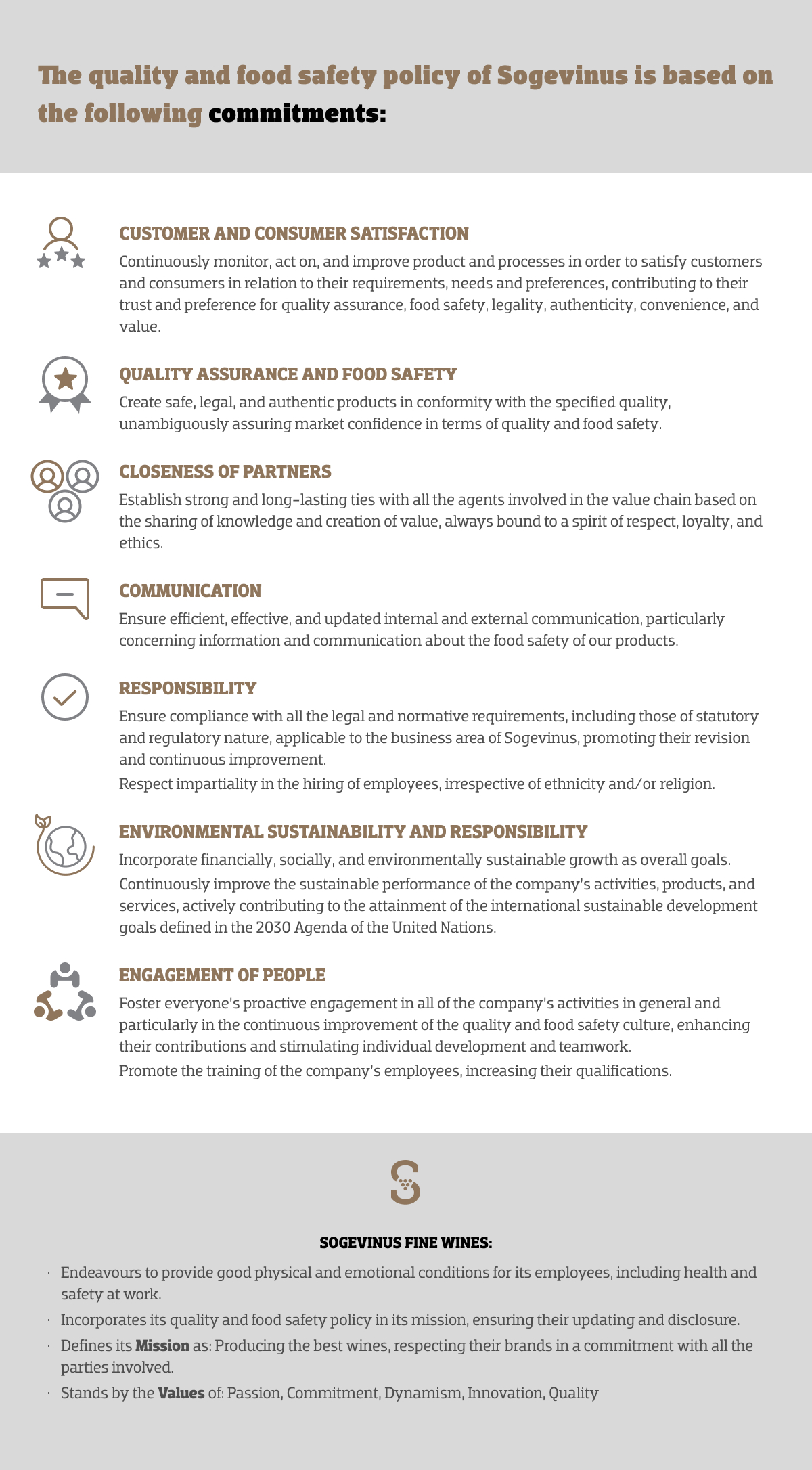
4Cs Project
Consumer Cross Cultural Context – Intercultural evaluation of traditional Portuguese wines and products
Project designation | 4Cs – Consumer Cross Cultural Context – Intercultural evaluation of traditional Portuguese wines and products
Project code | NORTE-01-0247-FEDER-033790
Main goal | Strengthen research, technological development and innovation
Intervention region | Norte
Beneficiary entities | Sense Test, Sogevinus. WEDOTECH, Faculty of Sciences of the University of Porto
Approval date | 29/05/2018
Start date | 01/07/2018
Date of the conclusion | 31/03/2022
Total eligible cost | 525 554.08 €
Financial support from the European Union | FEDER 349 457.15 €
Objectives, activities and expected results
Food and drinks undergo a series of physical and chemical reactions in the mouth during chewing and salivation, until swallowing. The perception of aroma, flavor and texture also changes. Therefore, conventional static sensory methods, which require tasters to evaluate their sensations dynamically, but which limit them to a single evaluation, lead to the loss of important sensory information about the product. On the other hand, the context in which a meal or product is served, or the simple combination of different foods, or foods and drinks, can influence how much they are enjoyed. A series of studies indicate that the environment (visual, sound, olfactory and tactile) in which a meal or product is consumed can also influence its hedonic appreciation. In order to respond to these two emerging challenges in the area of sensory analysis and consumer sciences, the 4Cs project – Consumer Cross Cultural Context, proposes to investigate different dynamic sensorial and emotional profile methodologies, contrasting results between techniques, between panels with levels of varied training (trained and naïve) and between products evaluated in combination with others or separately. The 4Cs project also proposes research into the impact of context (immersive sound and visual environment) on the acceptance and dynamic perception of various products. Taking into account the interests and experience of the companies that make up the consortium, the evaluations will focus on different categories of Port wine and various traditional Portuguese products. With the aim of increasing the export potential of products and services offered or to be offered by co-promoters, and with a view to enhancing gastronomic tourism associated with traditional national products, the research will be extended to intercultural studies involving visitors from different countries.
The objectives of Project 4C- Consumer Cross Cultural Context – Intercultural evaluation of traditional Portuguese wines and products:
I. Evaluate, develop and implement several dynamic sensory profile methodologies that allow the multi-attribute evaluation of traditional Portuguese wines and products;
II. Compare and evaluate differences in the dynamic characterization of products using panels of trained tasters versus panels of naïve tasters (undifferentiated, untrained tasters, commonly known as consumers);
III. Investigate the dynamic sensory profile of different types of Port Wine, traditional food products, as well as selected combinations of both;
IV. Develop two integrated pilot systems for multisensory control of the surroundings and investigate the effect of context on the perception – sensorial and emotional – and acceptance of Port wines from different categories, traditional food products and their combination;
V. Investigate the transcultural dimension of the determinants of appreciation and acceptance of Port wine and other traditional Portuguese products;
SAW. Increase the level of internationalization of co-promoters.
To achieve the objectives proposed in this project, a work plan was designed consisting of the following activities:
Acquisition and development of new knowledge and capabilities for project development
| Activity No. | Activity Designation |
|---|---|
| 1 | Preliminary assessments / conceptual design |
| 2 | Technical specifications |
| 3 | Acquisition and development of new knowledge and capabilities for project development |
| 4 | Development |
| 5 | Integrated system testing and optimization |
| 6 | Disclosure and dissemination of results |
| 7 | Project management and coordination |
The project is led by the company Sense Test, and carried out in partnership with Sogevinus, WEDOTECH and the Faculty of Sciences of the University of Porto.












